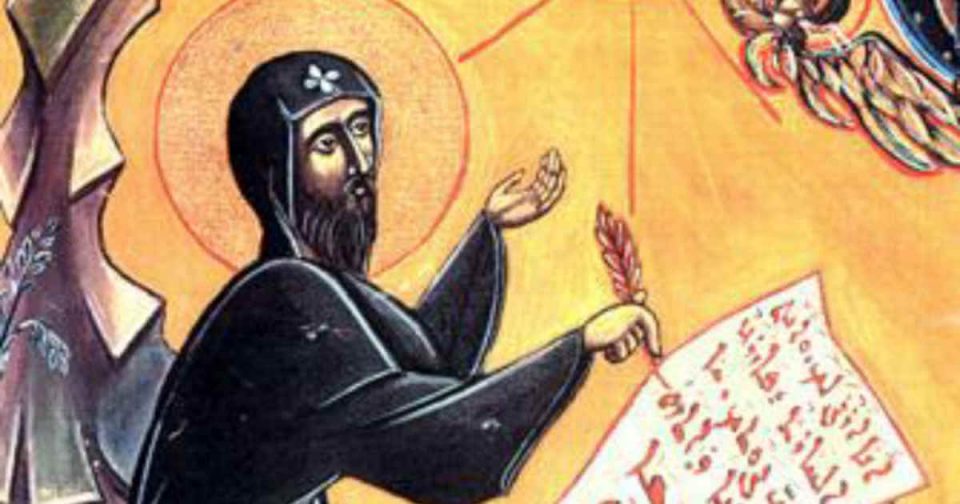Sant'Efrem, Saint of the day for June 9th

Saint Ephrem, deacon and doctor

Saint Ephrem, deacon and doctor
Early 373th century - XNUMX
June 9 - Optional memorial
Liturgical color: white
Patron saint of spiritual directors
The harp of the Holy Spirit
The Councils of Ephesus in 431 and Chalcedon in 451 completed a centuries-long dance of scorpions. Bishops, theologians and scholars from Egypt to Syria had surrounded themselves for a long time with suspicion, wounding their enemies with sharp words and pointed tongues. Did Jesus Christ have one or two natures? If two natures united in his will or in his person? If united in his person, to conception? Was it a person or two? Intelligent and polite men have defended every nuance of every subtlety of every complex question with all their remarkable skill. The answers outlined by Ephesus and Chalcedon, whose intriguing political intrigues were far from stimulating, definitively answered the relevant questions, establishing orthodox teaching forever. The theological language coined during those XNUMXth century debates is still familiar to the Church today: hypostatic union, monophysitism, Theotokos, etc.
The saint of today, Ephrem, was active a century before the great conclusions and clarifications of the fifth century Councils. Although Ephrem did not deviate from what the later Councils would explicitly teach, he used very different language to communicate the same truths, anticipating the subsequent teachings through poetry. Sant'Efrem was first of all a poet and a musician. His language is more beautiful, compelling and memorable because it is metaphorical. Accuracy in words risks dryness. You can say that the average density of air in the ship's hull eventually equaled the average density of the surrounding water. Or you can say that the ship sank like a stone on the ocean floor. You can write that the high dew point of a day caused the evaporation of the water vapor content in the air to slow down. Or you can write that it was so hot and humid that people melted like candles. The Church can teach us that we eat the body and blood of Christ in the Holy Eucharist. Or we can speak directly to Christ with the poet Ephrem and say: “In your bread hides the Spirit that cannot be consumed; there is fire in your wine that cannot be swallowed. The Spirit in your bread, the fire in your wine: here is a wonder heard from our lips. "
The Councils of Ephesus and Chalcedon taught that the one person of Jesus Christ united in himself a fully divine nature and a fully human nature from the moment of his conception. St. Ephrem wrote “The Lord entered (Mary) and became a servant; the Word entered her and became silent within her; thunder entered her and her voice was firm; the shepherd of all entered her and became a lamb ... "Poetry, metaphor, paradox, images, song and symbols. These were tools in the agile hands of Saint Ephrem. Theology for him was liturgy, music and prayer. It was called the Harp of the Holy Spirit, the Sun of the Syrians and the Column of the Church by its admirers, who included luminaries such as Saints Jerome and Basil.
St. Ephrem was a deacon who refused ordination to the priesthood. He experienced radical poverty, wearing a dirty and patched tunic. He had a cave for his home and a rock for his pillow. Ephrem founded a theological school and was deeply involved in catechesis through preaching, liturgy and music. He died after contracting an illness from a patient he was caring for. Saint Ephrem is the Church's greatest Syriac-speaking writer, proof that Christianity is not synonymous with Western or European culture. The world of Ephrem has thrived for centuries with its unique Semitic identity in today's Syria, Iraq, Iran and India. St Ephrem's Syria was not the "Near East", as Europeans later called the region. For him, it was home, the profound cradle of the new way of loving God who was and is Christianity. St. Ephrem was declared Doctor of the Church by Pope Benedict XV in 1920.
Saint Ephrem, you wrote tenderly and lovingly on the truths of our faith. Help all Christian artists to remain faithful to the Truth and to communicate Jesus Christ to the world through beauty, music and images that elevate the mind and elevate the heart to God himself.